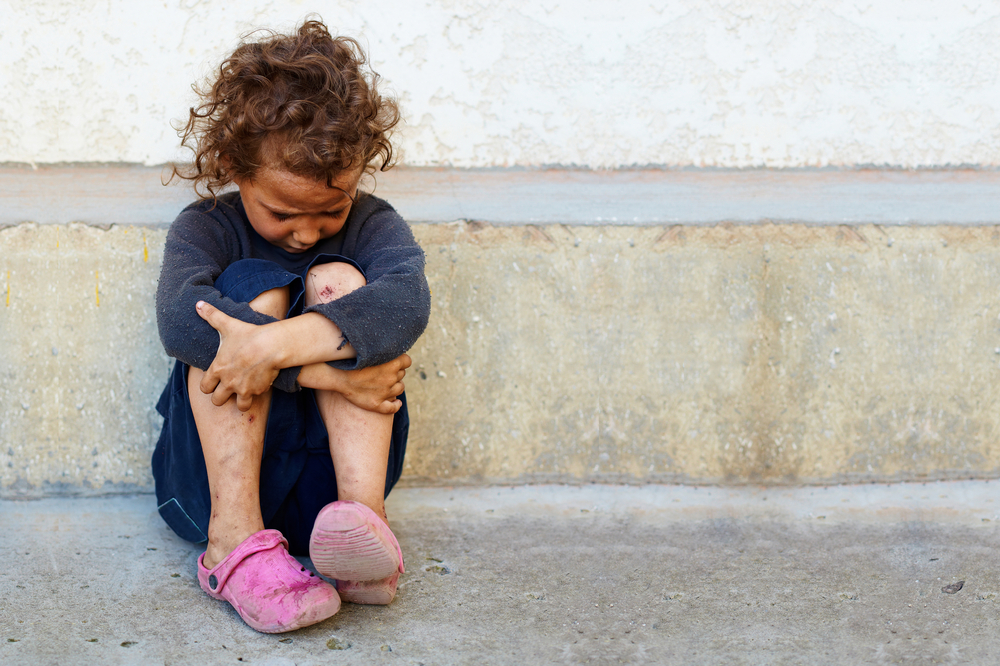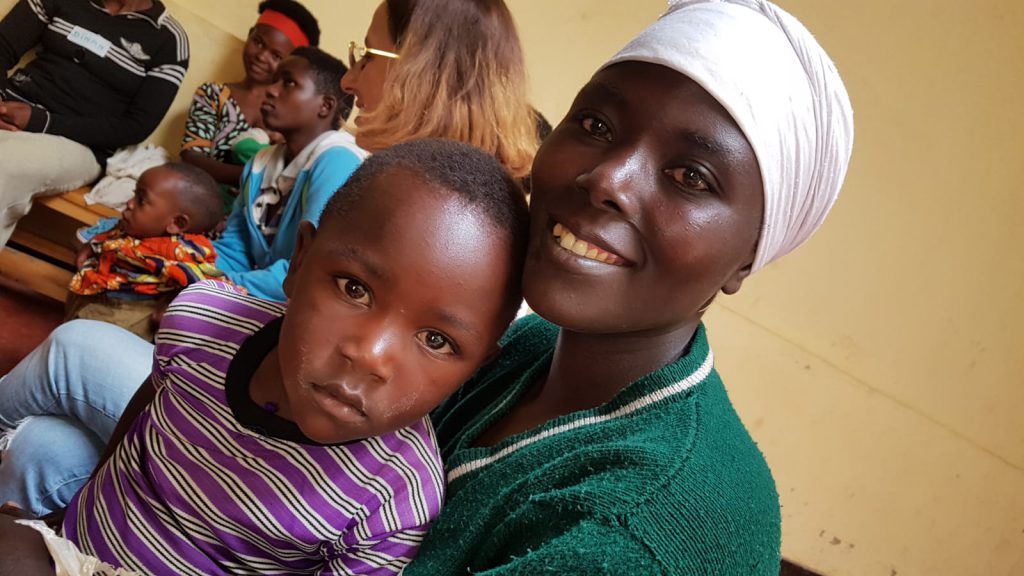At Humanium, we are already focusing on early childhood. It is in early childhood that the foundations for each human life are laid.
Early childhood can be defined as the period between a child’s birth and their eighth birthday (World Vision). This is a crucial time in a child’s development because this period lays the foundations for the child’s learning and well-being throughout their life. It is therefore considered to be the most important phase of development in life, that which shapes the adults and consequently the society of tomorrow. Protecting and safeguarding children’s development over this period is therefore of the utmost importance for parents, states and all individuals who want to contribute to building a better world.
Understanding early childhood development and its importance.
Early childhood as a concept comes from neuroscience and behavioural research. This concept, developed over decades, has gradually brought to light the importance of a child’s early years in terms of their physical, cognitive, linguistic and socio-affective development (Center on the Developing Child Harvard University).
As such, children’s early experiences shape their whole life. These early experiences lay the foundations of a child’s brain architecture, and strongly influence the strength or weakness of the child’s ability to learn, their health and their behaviour throughout their life.

It is important to understand that a healthy start in life gives each child an equal chance to flourish and become an adult who contributes positively to the community, both economically and socially (WHO). This start continues however to be conditioned by a number of factors relating to home life, community and the child’s environment. As such, a child in the early years of life needs to be stimulated and to receive care and protection at home and in their community. They also need a healthy and balanced diet (World Health Organization, 2007). These various factors ensure that every child benefits from healthy development and therefore has a better chance of succeeding in life. Nevertheless, ensuring that children develop properly continues to pose problems in some parts of the world due to a number of obstacles.
The obstacles to healthy early childhood development
Early childhood development continues to pose problems in some parts of the world, more specifically in developing countries, for a number of reasons.
Parents living in developing countries face a lack of financial resources and generally struggle to provide their children with the prerequisites for healthy development. Many children under five in developing countries are exposed to a range of risks, in particular poverty, malnutrition, poor health and unstimulating home environments that hinder their cognitive, motor and social-emotional development. The majority of these children live in South Asia and Sub-Saharan Africa. According a Lancet article, approximately 200 million children do not fulfil their development potential due to poverty, poor health and nutrition, and deficient health care provision. Unfortunately, poor early childhood development affects a child’s life not only in the short time but also in the long term. During childhood, poor early childhood development reveals itself in educational difficulties. These disadvantaged children are unlikely to do well at school and, consequently, they are likely to earn a low income, have a high fertility rate and provide poor care for their own children, thus contributing to the intergenerational transmission of poverty (Prof. S Grantham-McGregor, et al., 2007).

There are however several ways to ensure that every child benefits from healthy development so that they can contribute more effectively to building a prosperous society.
Guaranteeing healthy early childhood development
Guaranteeing the healthy development of every child is paramount. This means that we must ensure early access to health care for mothers and their children, that children receive adequate nutrition and a stimulating environment. A child’s environment includes not only their close family, i.e. their parents, but also their family in a broader sense, their community, and even the country in which they live. It is therefore crucial to understand that healthy early childhood development involves everyone: parents, family, civil society, and government. In this respect, Humanium has not faltered in its mission. We are currently running two initiatives focused on parents, who are the primary guarantors of healthy early childhood development. In India, through its partner Hand in Hand India, Humanium has enabled micro-financing and support groups to be set up, enabling many mothers to develop a range of skills and qualifications. These initiatives enable sustainable living conditions to be built for women and their families. In Rwanda, Humanium has created communities of families through its local partner AVSI Rwanda. This involves discussion groups that bring together families to enable them to better understand early childhood and why this period is decisive for children’s well-being throughout their lives.

Guaranteeing the respect of children’s rights is of great importance if we want to ensure the healthy development of every child and give them an equal opportunity to succeed. There are, to this end, several legal instruments that generally and specifically safeguard the flourishing and development of every child. Crucially, a child must be well-nourished, be able to play and have to right to be loved. Children are guaranteed these rights by several texts. By way of example, we can cite the 1948 Universal Declaration of Human Rights, the 1989 Convention on the Rights of the Child, and even the 1990 African Charter on the Rights and Welfare of the Child. Each of these instruments seeks to guarantee children’s dignity and well-being. Every child, to the extent that their rights are respected, will benefit from a healthy environment. They will be safeguarded against all forms of exploitation and mistreatment. In order to guarantee children’s dignity and a better environment for them, Humanium has adopted a psychological approach with Rwandan communities. This approach involves adults recollecting their own childhood memories and feelings in order to enable them to better understand the impact and value of children’s rights.
Parents unable to provide for their children’s basic needs should have recourse to help from civil society and governments through programmes supporting early childhood development. It is therefore important to specify that nothing justifies the neglect of this crucial period in a child’s life. According to the report on a WHO study “Success in promoting early child development does not depend upon a society being wealthy. […] Regardless of their level of wealth, societies can make progress on early child development by allocating as little as $1.00 in this area for every $10.00 spent on health and education.” (World Health Organization, 2007).

Guaranteeing healthy early childhood development must also be a priority for governments, who are the main beneficiaries of it in the long term. Indeed, investing in early childhood development is the most profitable investment that a country can make in terms of breaking the vicious cycle of poverty, reducing inequality, ensuring individuals’ productivity and boosting a country’s economic competitiveness (Hansen, 2016).
This year, as we celebrate the 30th anniversary of the Convention on the Rights of the Child, we at Humanium strongly believe that each person must contribute to guaranteeing the protection and healthy development of children, and that we must all participate in improving children’s living conditions in all countries, and in developing countries in particular. The team at Humanium remains at your disposal should you require any guidance. Contact us at the following address: contact@humanium.org.
Written by Habib Kouamé
Translated by Holly-Anne Whyte
References
Center on the Developing Child Harvard University. (n.d.). The Science of Early Childhood Development. Retrieved from developingchild.harvard.edu: https://developingchild.harvard.edu/guide/what-is-early-childhood-development-a-guide-to-the-science/
Hansen, K. (2016, April 14). Early childhood development: A smart investment for life. Retrieved from blogs.worldbank.org: https://blogs.worldbank.org/education/early-childhood-development-smart-investment-life
Prof S Grantham-McGregor, Y B Cheung PhD, S Cueto PhD, Prof P Glewwe PhD, Prof L Richter PhD, & B Strupp PhD. (2007, January 6). Child development in developing countries 1. Lancet, p. 369.
World Health Organization. (2007, March). Early Child Development: a powerful equalizer. p. 76.
World Vision. (n.d.). Early Childhood Development. Retrieved from www.wvi.org: https://www.wvi.org/education-and-life-skills/early-childhood-development-0


